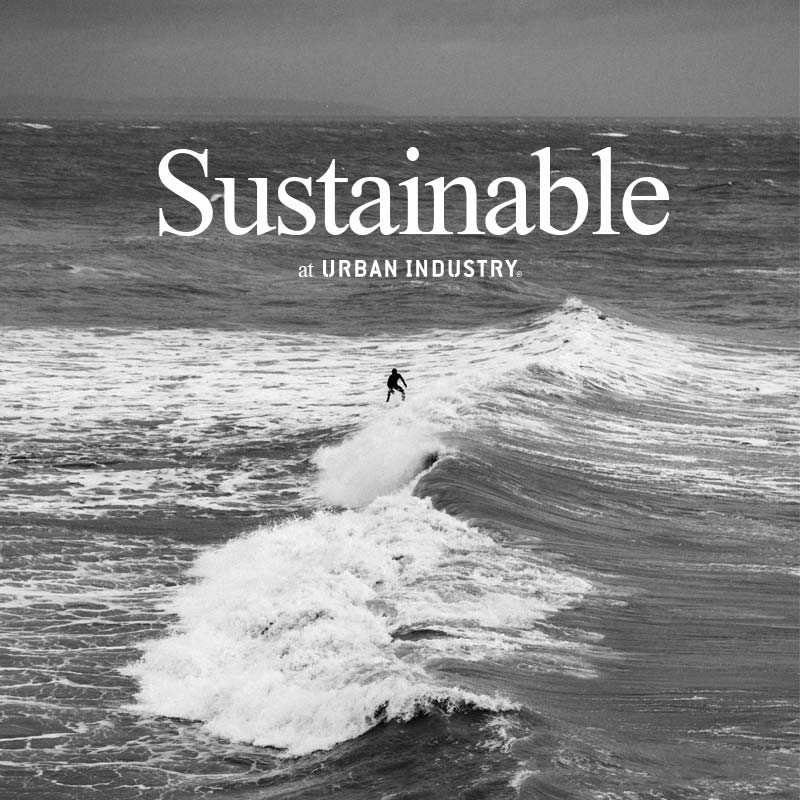
Urban Industry have always been a store that’s ahead of the curve both in terms of the products that they stock and the way in which they run their business. Given the delicate balance of our current climate situation, store owner Dan King has decided to take the lead and make his business as sustainable as possible. It’s an act that Dan has adopted not as part of a cynical marketing campaign or to attract a particular demographic of customer but rather to try and ensure that the planet is still around for future generations to enjoy. As a long time customer of the shop and someone who genuinely wants to live a more sustainable life but doesn’t really have a clue how to, I caught up with Dan to find out more…
Neil: I’ve noticed there’s a new sustainability section on the Urban Industry site, why have you decided to offer a list of your products in this way?
Dan: All through last year I just kept seeing various TV documentaries on the environment, sustainability, using less plastic, all the classic David Attenborough shows and it just seemed to be a big neon sign that I couldn’t really ignore. It just clicked for me that I really need to be doing something myself and from there it made me think about Urban Industry and how we ran the business. We started a bit of discussion with the staff and at the same time reached out to all our suppliers. We buy and sell products from some of the biggest brands in the world and of course there’s the potential for a lot of environmental impact good or bad. I just think its a good thing to highlight specific products where some kind of sustainable process has been used, to give our customers more information when they buy. Simple as that in the first instance.
Sustainability seems to be becoming less of a buzz word and more of an actual call to arms nowadays doesn’t it? Do you think that people are finally starting to get the message?
I think so. You’d have to to be completely caught up in your own world not to see all the loud messages everywhere that the planet needs our attention. To then not make the smallest changes to your everyday life is criminal, if not now I’m sure it will be actually criminal in a few years time.
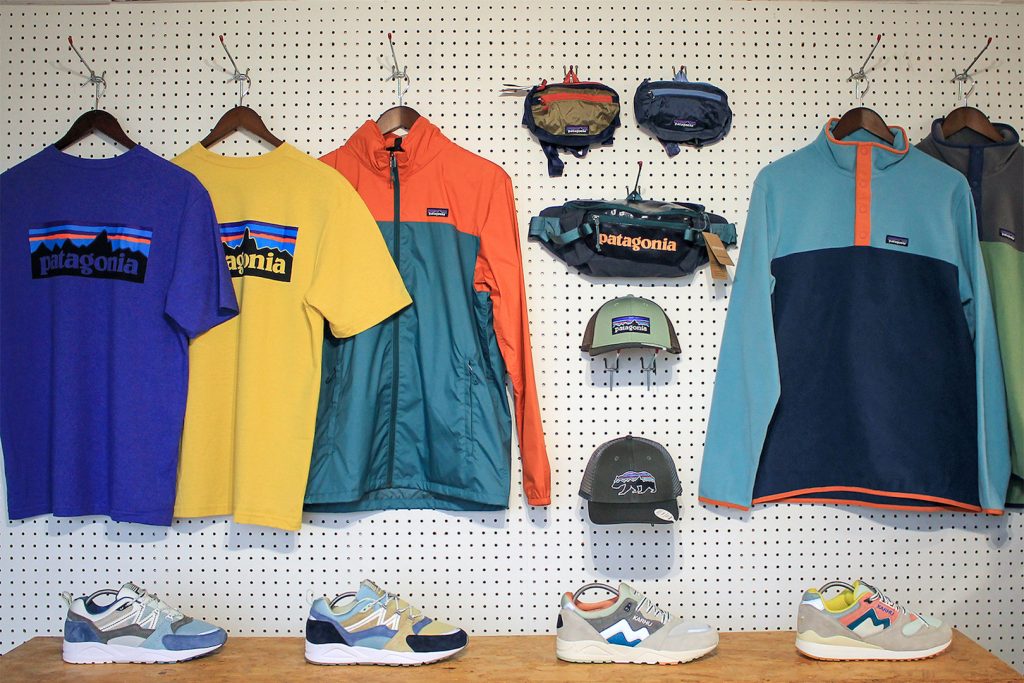
Which brands are particularly good at producing ecologically sound items?
The obvious one is Patagonia. They’ve set their complete ethos on being sustainable at every level and I like the way they are honest about not having all the answers and maintaining the journey to keep reducing the impact of their business further and further. Once I’d contacted all our brands last year it was surprising how many were doing some level of sustainable production but they just weren’t talking about it. It seems it’s a lot of the outdoor brands like Patagonia, Fjallraven, Klattermusen that really go to great lengths to make it part of their business process, I’m hoping that some of the other brands we stock will now follow suit.
What would you say to the other brands that are less good at creating sustainable products?
I’ve had lots of discussions with brands all through the Fall’19 buying season just gone and it does seem that the majority are at least starting to talk about the issues if not already doing something.There are still a few that are perhaps so big that it’s like a tanker turning to get anything done quickly and I’m not here to name and shame. At the end of the day I still have to run the business and keep my staff employed. We’re working with fashion and items will sell because they are purely fashionable and not because they were created in a sustainable way. As I’ve said, I feel it’s a start and any small change is a change. We’ll continue to ask our brands to supply us more sustainable products each and every season and I’m definitely looking to buy specific bits from ranges that are sustainable rather than ones that aren’t if they’re available. Hopefully these ranges will get bigger. I think the biggest ray of light is that even the biggest brands are generally already doing a lot internally but they’re just not talking about it outwardly yet.
As a customer, why should I care about how my products are made?
As far as i can tell from everything I personally see and hear on the subject we should be starting to care a lot more, I’m not preaching to anyone but to me it seems to be smacking us in the face. Even if you have Trump levels of denial about climate change you can’t argue with the pollution happening right now in Indonesia and other countries. Whatever you might think about Stacey Dooley, her recent documentary was pretty impactful on the issues facing those countries as they supply our hunger for fast fashion. What you buy as a consumer will be directly affecting someone else on the planet. Also it can’t be long before our decisions really start to impact our lifestyles so surely if we have a chance to turn it around now then it’s worth doing.
It’s quite depressing finding out some of your favourite brands or garments have polluted the planet isn’t it?
Absolutely. I think the tricky thing for all of us is knowing what, when and to what extent has a new piece of clothing affected things. The whole process is confusing and not very transparent. As a store we can only really go on what the brand tells us it’s doing, so we trust in our relationships and we will actively promote those benefits.
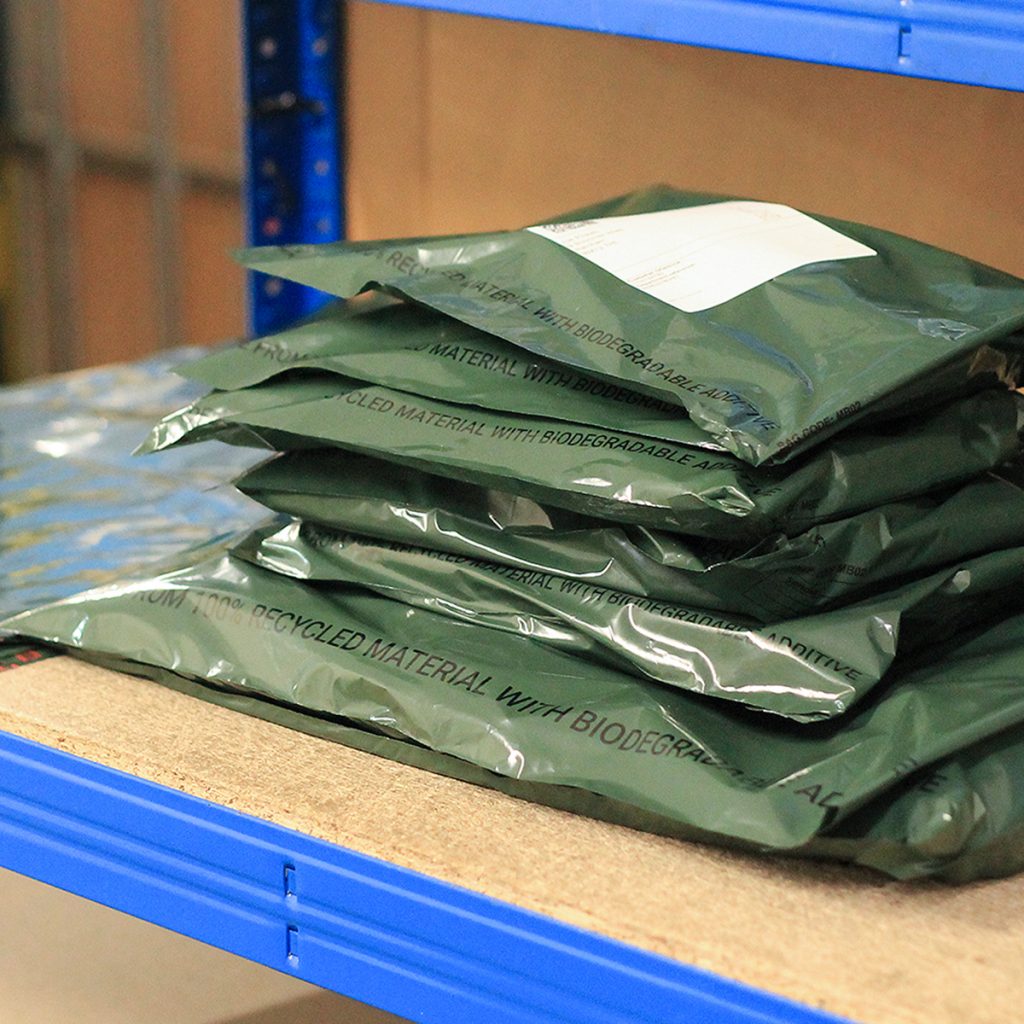
There’s a variety of different signs and symbols that relate to various areas of sustainability on the products, can you talk us through some of them?
We discussed what we thought were the most applicable indicators of ‘sustainability’ to Urban Industry and the brands we stock. We’ve so far settled on ten indicators that we think we can use to show our customers that some thought has gone into the product. We may well end up adding more as time goes on and I’m sure our customers will feed back on these and others. We’ve chosen,
Recycled material : Pretty obvious, we’ll use this where any recycled material such as recycled polyester is used in making a jacket etc
Renewable Energy : We found some brands use factories which are powered by wind or solar power
Bluesign Approved : Bluesign is a global solution for brands to end to end manage a sustainable textile production. It acts a quality seal for consumers to know that the product faced rigorous checks and balances through its global production.
Fairtrade Approved : Another familiar one, brands who have actively signed up to be fairtrade approved make sure that workers around the world get treated fairly. Another seal of quality for the end user.
Durable Construction : Another part of sustainability is long term use of one product. So we might tag a pair or red wing boots for instance and chances are they will outlive you! You’re not throwing them away anytime soon.
Organic Cotton : We know this may not be perfect either and water use maybe an issue with its production but right here and now it feels like a plus point. All these will be under constant review.
Reduced Water Use : How much clean drinking water gets used in the production of clothing is a massive issue in those countries making our gear. We’ll use this when a brand actively uses water reduction processes.
Traceable Down : With the trend of down jackets we felt this was worth of putting in. Where did the goose and duck down come from? Where the birds treated well? There are fully traceable systems in place that can give that information.
Made in the UK : We thought this was worthy of adding. If you like in the UK specifically and want to buy something with less miles on the clock.
Vegan Friendly : Veganism is of course becoming a bigger thing in food but also in clothing.
I’m sure people will argue the toss with us and, yes, if you go beneath the surface further and further down the chain you can find fault with everything. We just feel that it’s something! And something is better than nothing. We can keep honing these down and getting better at sustainability from here on in.
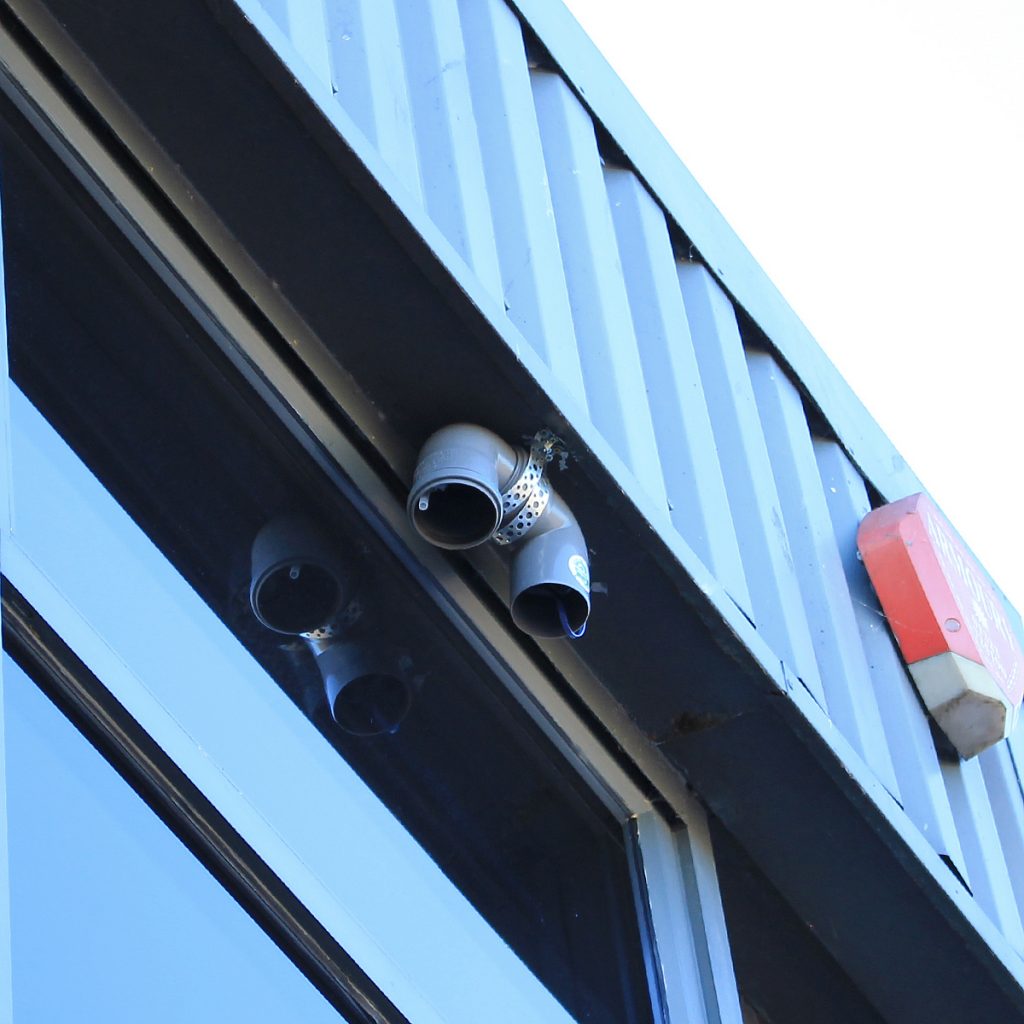
Being based up in a dirty Northern town like Manchester I’d have thought where you are in Eastbourne is relatively pollution free by comparison but that’s not the case is it?
Yeah you would think. Urban Industry is based at the start of the South Downs National Park, we are a seaside town, clean and pretty tidy but yes we have air pollution issues. We’ve actually got involved with a local citizen run group called ‘Clean Air Eastbourne’ who are drawing attention to the air quality in the town. They make DIY air pollution detectors and we’ve fitted one to the side of our warehouse and shop. It feeds back real time air quality data to a global map run by a German based group. It’s pretty scary actually what we’re breathing in daily. We can do our bit to try and highlight the local issues and eventually feed in to make changes.
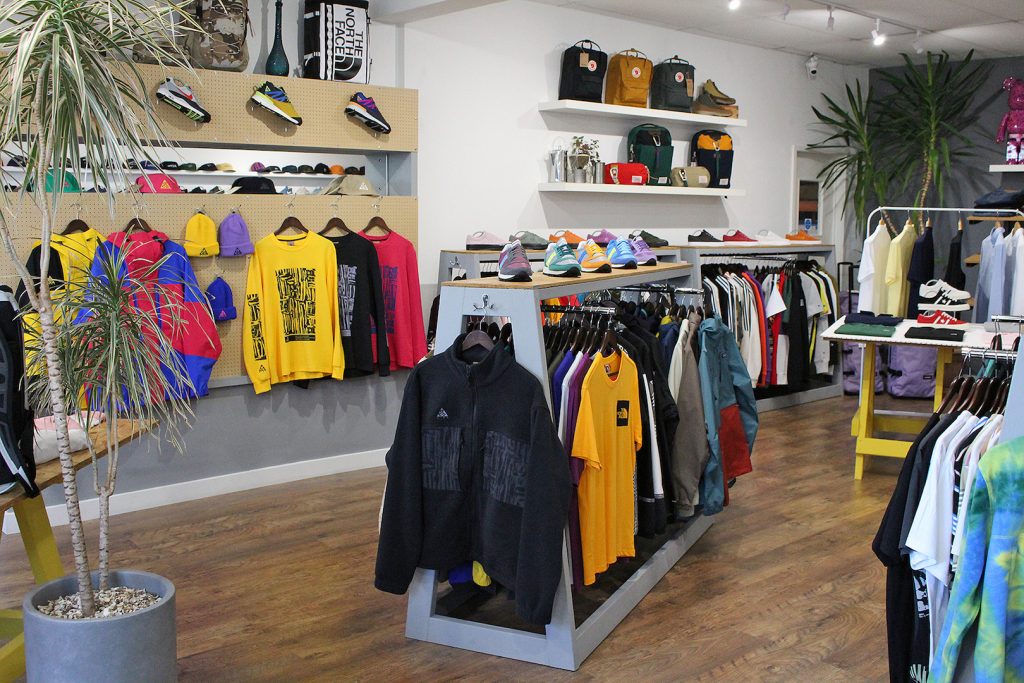
This feels like the start of something significant, what needs to happen next?
We’ll continue down this path and keep pushing our brands for more sustainable products and hopefully be part of the conversation to get other brands to start looking at that supply chain too. We’ll also continue to make changes ourselves with the business, we’ve already moved over compostable mailing sacks for our shipment out, we’ve been using recycled cardboard boxes for years. We’re presently trying to remove as much plastic as we can from the chain.
Click here to see Urban Industry’s sustainable products.
